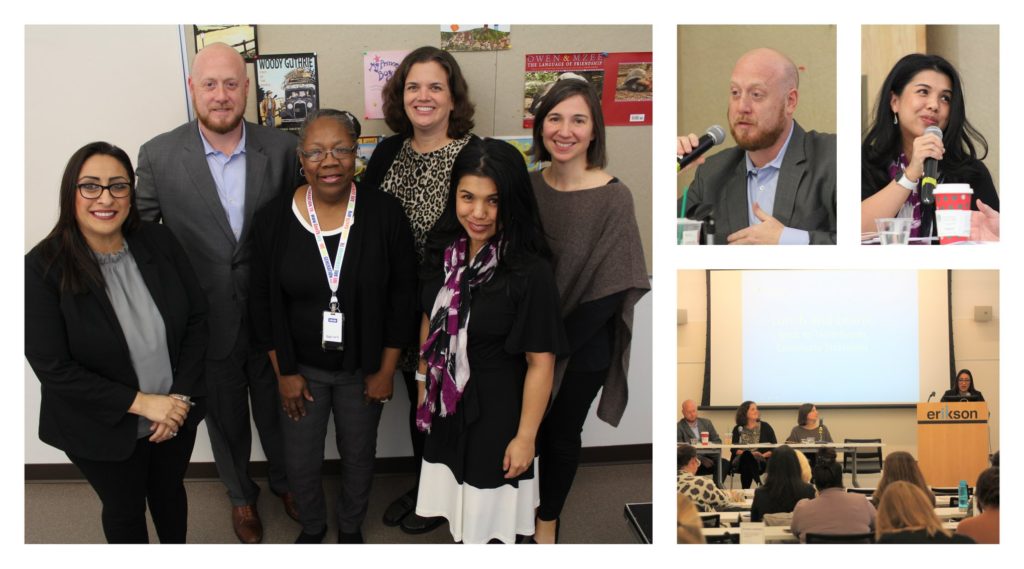Trauma Counseling Offers Support for Pre-K and Kindergarten Students in Altgeld-Riverdale

This post is the second in our series of highlights from BPI’s 50th Anniversary Report and highlights the expansion of trauma support services to Pre-K and Kindergarten students in the Altgeld-Riverdale community, part of an ongoing partnership between BPI and the Juvenile Protective Association (JPA).
Altgeld-Riverdale is unique because children and youth make up such a large percentage of the population. The median age in the community is a little over 20. Kids under age eight make up about a quarter of the population in the community. Seventy-five percent of young kids (0-5) live in poverty—that’s the highest rate of childhood poverty of any community area in the city.
Since the start of BPI’s early learning work in Altgeld-Riverdale, teachers, parents, and community partners have continually expressed their concerns regarding children’s exposure to stress and trauma in the community. Teachers in particular lamented time and again how the effects of trauma, often expressed through disruptive classroom behavior, interfere with day-to-day teaching. Teachers were struggling, and they needed help.
To address these challenges, BPI and JPA, launched a pilot program in spring 2018 to provide monthly trauma support services in all six Pre-K and Kindergarten programs in the community. Over a number of months, a licensed social worker from JPA provided two types of trauma support services—one for kids and one for teachers. Teacher feedback regarding the pilot was positive and enthusiastic. One overarching recommendation, however, did emerge: Do more.
Based on the success of the Pilot Program and in recognition of the critical need for more intensive trauma engagement, we introduced a new and more intensive trauma support program in the 2019-2020 school year. Our new three-year trauma support program is offering a multi-pronged intervention focused on key connections in a child’s life: teacher-child, parent-child, and parent-teacher. It includes teacher consultation and student lessons, along with clinician-led parent workshops, an opportunity for individual and small group therapy, and a JPA-led evaluation.
“Our kids are exposed to so much trauma, and as educators we are in the classroom dealing with it every day. Before the program we were addressing it as best we knew how. Now our counselor visits every Thursday. At first it felt like an interruption to classroom instruction, but now we’re beginning to love it. She gives us ways to address these traumas that we didn’t have before.”
-Almetta Keenon, Teacher at Wheatley Child-Parent Center
Critical to the ongoing success of this program is rigorous evaluation. JPA research specialists will collect information from teachers via satisfaction surveys mid-year and end-of-year, along with two standardized surveys for each student twice during the year. JPA will also collect student administrative data where available (test scores, grades, attendance, behavioral documentation, and demographic data) to measure student outcomes. For comparison purposes, JPA would also collect the same survey/administrative data for students in demographically similar Chicago schools receiving no intervention.
The proposed “high-dosage” trauma support program offers an important opportunity to inject critical support into schools and centers in one of Chicago’s most challenged communities. Based on the success of the pilot and similar programming JPA is engaged in elsewhere in Chicago, this intensive trauma intervention holds great promise to be of significant and enduring benefit to young children, families, and teachers in other communities where the negative effects of trauma exposure are felt every day in classrooms, homes, and neighborhoods.
Pictured l-r: Jaclyn Vasquez, Erikson Institute; Stephen Vick, Infant Welfare Society of Evanston, Almetta Keenon, Wheatley Child-Parent Center; Margaret Clauson, Skokie-Morton Grove School District 69; Aimee Hilado, Ready for Success Network; and Susannah Levine, BPI. Image courtesy of Erikson Institute Policy and Leadership Facebook page.
Back To Blog